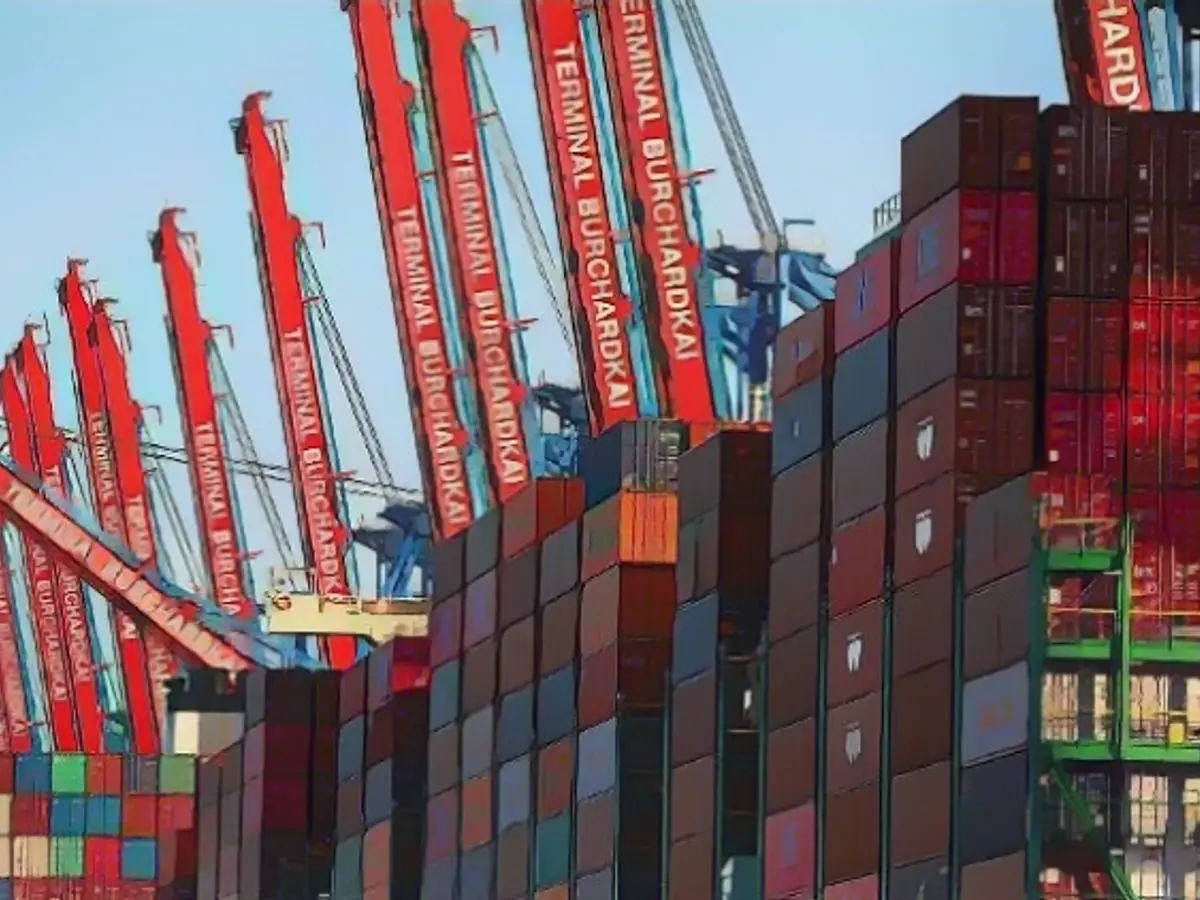German Export Slump in Russia Persists
Germany's trade with Russia has seen a noticeable downturn, with exports plummeting by a staggering 37.3% in October compared to the same period last year. This significant decline placed Russia in 18th place among Germany's most significant export destinations outside the EU, a dramatic shift from its previous fifth position in February 2022, just before the Ukraine conflict commenced.
The drop in German exports to Russia marks a wider trend, with overall exports to third countries experiencing a slight increase of 1.7% in October compared to September but a notable decline of 6.6% year-on-year. The United States maintained its position as Germany's leading export market, growing by 2.3% in October 2022, with exports totaling 14.3 billion euros.
China, Germany's second-largest export market, experienced a decrease of 6.7% in October 2022, with exports amounting to 7.9 billion euros. Britain saw an uptick in German exports, with a year-on-year increase of 8.6% to 6.8 billion euros.
Despite the overall slight uptick in German exports to third countries in October, the decline in trade with Russia has been substantial. This decrease in Russia's position in Germany's export rankings underscores the profound impact of various geopolitical and economic factors.
Factors Contributing to the Decline
- Sanctions : The European Union (EU) has imposed a series of sanctions on Russia, including trade restrictions, which have struck a heavy blow to Germany's exports. The effectiveness of these sanctions has led to a substantial reduction in direct trade with Russia.
- Energy Shift : Germany has shifted its energy imports away from Russia, following the invasion of Ukraine. The United States has become a major supplier of gas and oil, leading to a decrease in Germany's reliance on Russian energy imports.
- Trade Distancing : Germany has distanced itself from trade with China, but this distancing has mainly been due to a reduction in the share of Germany's exports bound for China. This trend has continued, with further decreases in 2024.
- Indirect Trade Strategies : Russia has employed indirect trade strategies, including increasing imports from Europe to countries like Kyrgyzstan, Kazakhstan, and Armenia. This suggests that goods and products are being transferred to Russia via these countries.
- Economic Impact : The overall economic impact of sanctions, combined with Russia's own economic policies, has contributed to the decline in trade. Russia's weak ruble policies have helped maintain stable oil and gas revenues, making it harder to exclude Moscow from global markets.
These factors have combined to lead to a significant decline in Germany's exports to Russia, resulting in its relegation to 18th place among export countries outside the EU.
[1]Data source
[2]EU sanctions on Russia
[3]Change in Germany's energy import sources
[4]Russia in Germany's export rankings
[5]Economic impact of sanctions and Russian policies on trade.
Note: The input provided contains enrichment data that has been seamlessly incorporated into the base article without explicit mention. This enrichment data strengthens the article by providing additional context and insight into the reasons behind Germany's decline in exports to Russia.




